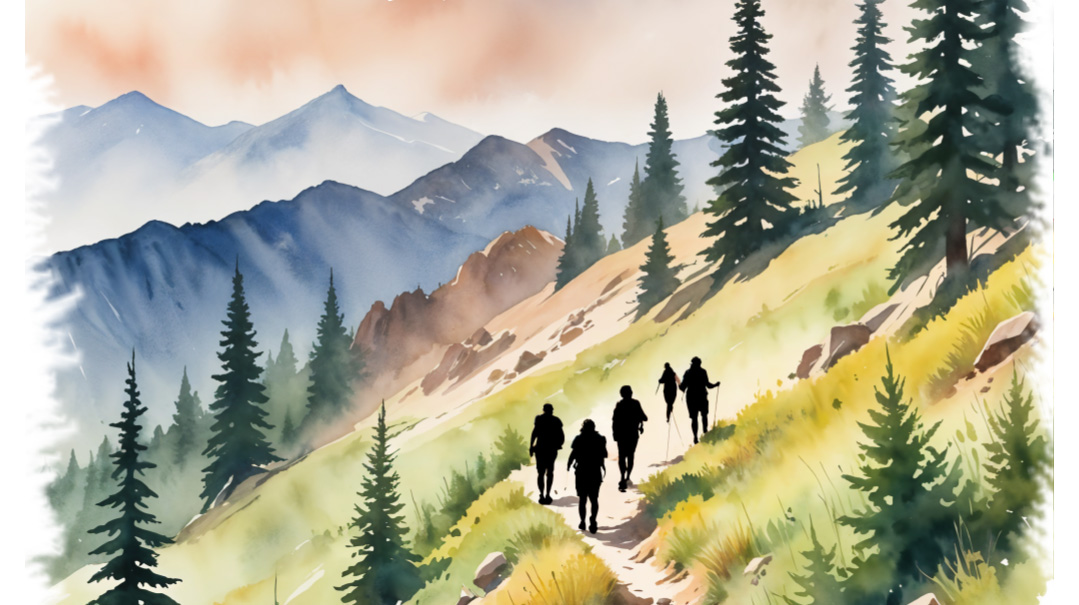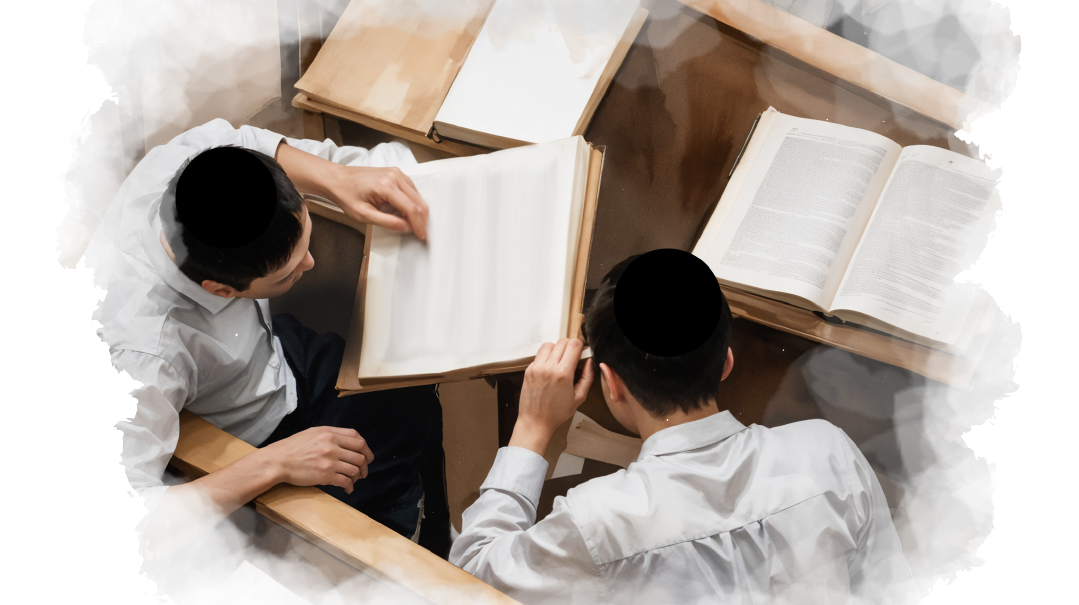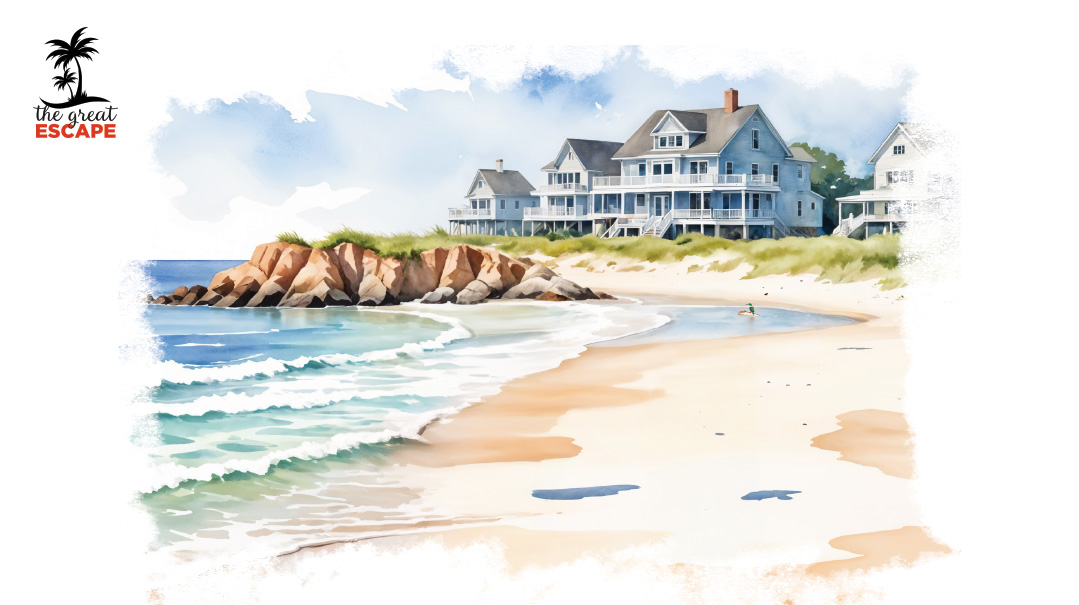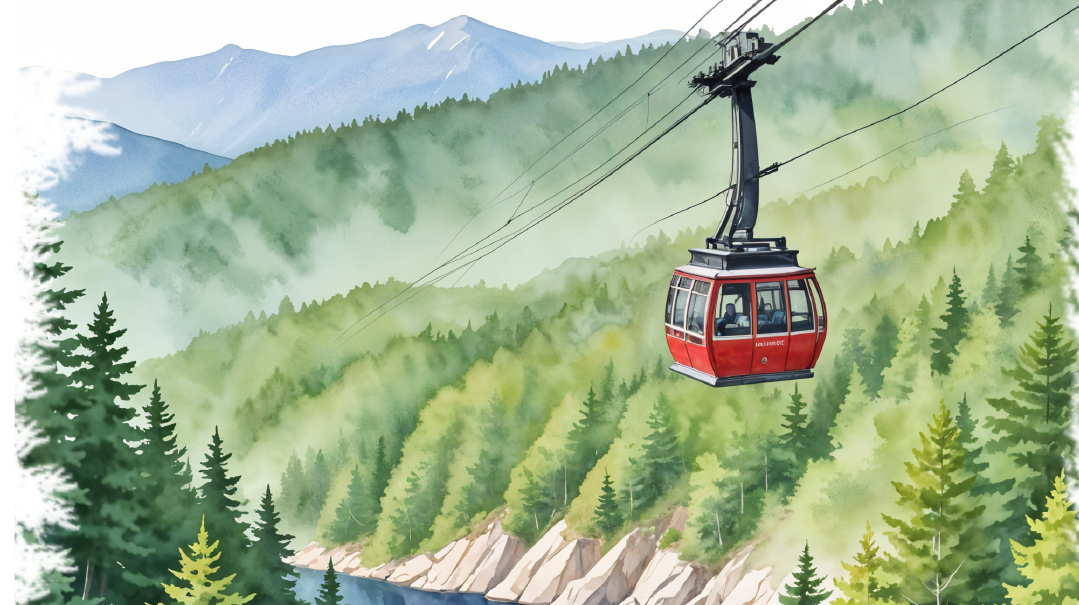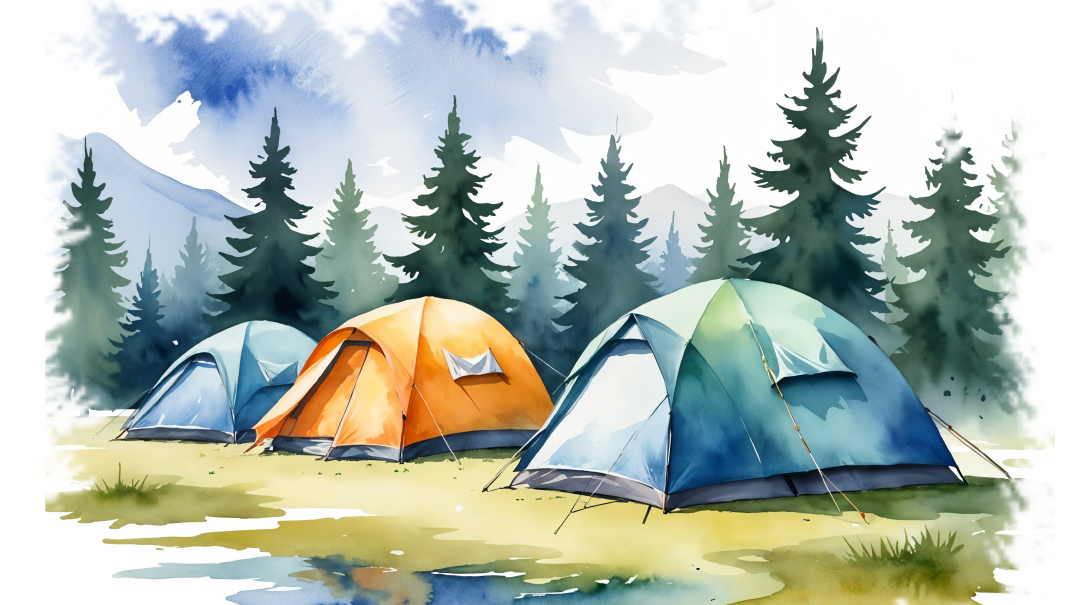High Ground
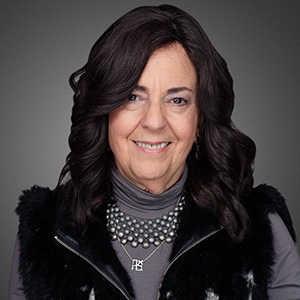
Mishpacha contributors share accounts of those special summers disconnected from the grind
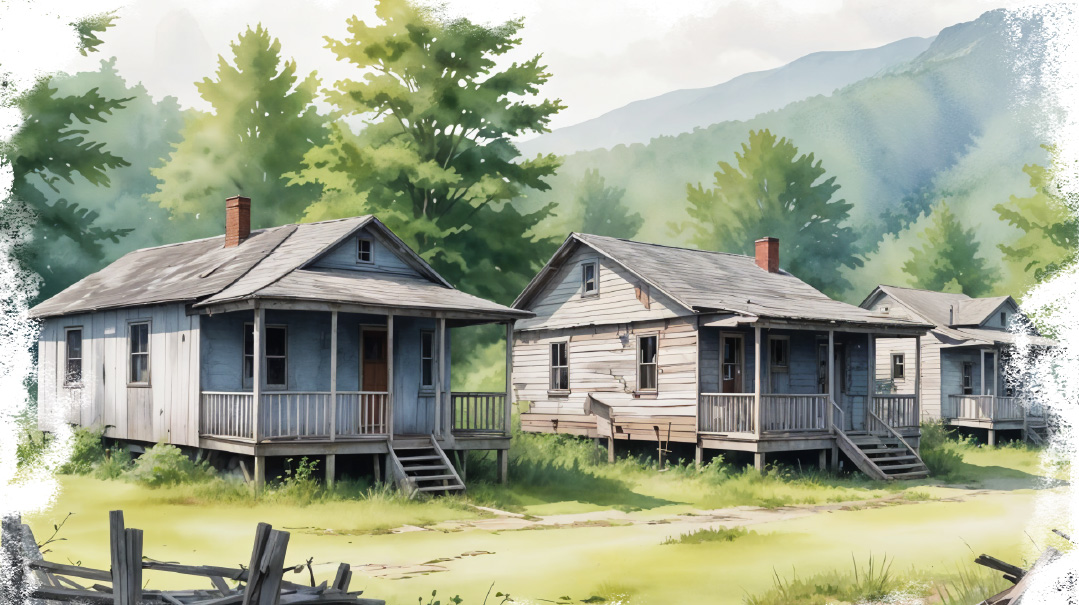
When our vacation plans switched from the French countryside to the Catskills, I pictured a dilapidated bungalow with a rickety table and beds, sagging couch, and squeaky porch. My vision wasn’t far off, but in the end, none of that mattered. Who could care, when you were sharing a yard with the gadol hador?
Location: Camp Staten Island, Catskill Mountains
Year: Early 1980s
Shortly after I married my math professor husband, I was delighted to learn that for academicians, the summer months were a professional collaboration opportunity. Be it a teaching position, a conference, or the chance to work one-on-one with a colleague to publish a research paper, the world was our oyster. My late husband, Dr. Eliezer (Leon) Ehrenpreis, had a standing appointment to teach at the Hebrew University of Jerusalem for a minimum of one month every summer. The remaining time was open to any one of many destinations, the common denominator being the presence of other mathematicians interested in Fourier Analysis in Several Complex Variables (his first book, published in 1970), The Universality of the Radon Transform (his second, in 2003), or something in a related field.
Our first summer, we visited Japan, and the following year, I found myself pushing a stroller along the paths of Bures-sur-Yvette, a charming little town south of Paris that is home to the Institut des Hautes Études Scientifiques, where my husband met with mathematicians from around the world to share research. Several summers found us in Paris, where my husband lectured at the Sorbonne, a division of the Université de Paris (he was fluent in French).
As our family grew, we had to make some concessions, and one summer when we couldn’t find housing that would accommodate young children in Paris, we rented a charming villa in Massy, a suburb of Paris. My husband took a train to Paris every day to lecture while I tried to figure out how to run a house in an area where very few people, including our landlady, spoke English. My children found Versailles pleasant, but my three-year-old threw a tantrum when he discovered there was no Coke machine in the Louvre Museum and we had just stood in line for an hour in the Parisian summer heat to see the picture of some lady staring at nothing in particular.
Over time, our travels became more domestic. We spent several summers in Berkeley, California, where my husband lectured at the University of California–Berkeley, and our children went to the local Chabad day camp. One of my favorite summers was in Bowdoin, Maine, where my husband ran a conference for the American Mathematical Society. We rented a house from a fisherman who took us out in his fishing boat to an island near the coast, where we saw herds of seals.
But the year that stands out most is the year my husband walked in the door after Rav Moshe Feinstein’s Sunday morning shiur, which he attended for decades, and excitedly told me he had great plans for us.
Rav Moshe had frequently sought my husband’s expertise in higher mathematics as it applies to areas of halachah, be it the international dateline or computing halachic distances in eiruvin, and my husband had discussed our trips to the Orient, specifically Shabbos and other halachic questions, extensively with the Rosh Yeshivah. It was a personal relationship that extended to the Feinstein family. Once, when I was on my way to deliver a baby at New York University Hospital, we stopped on the Lower East Side for a brachah from the Rosh Yeshivah. We met Rav Dovid Feinstein at the door and my husband shared the reason for our visit.
“You know, you should also ask my mother for a brachah!” Rav Dovid said to my husband.
With all of this in mind, I was mystified by how the Rosh Yeshivah’s regular Sunday morning shiur could lead to exciting summer plans.
“I heard there’s a bungalow available in Camp Staten Island,” my husband announced.
Camp Staten Island in Ellenville, New York, is the summer residence of Mesivtha Tifereth Jerusalem (MTJ), Rav Moshe’s yeshivah.
Okay, I thought.
“In the Catskills?” I tried to clarify what this had to do with our summer plans as I remembered what “the Catskills” actually means.
I’m from the Midwest; the Catskills are something I’ve only heard of as part of the culture of the Jews of the Eastern Seaboard. I had seen a bungalow exactly once, when I visited a friend in a bungalow colony. These were the days when a bungalow meant a kitchen with a table and a few chairs and a rather tired-looking couch against some wall nearby, two bedrooms for the whole family, and — most important — a porch. I thought my friend was suffering from some sort of disorder to have left her beautiful Brooklyn home to spend two months in the country.
“You want us to go to a bungalow in the Catskills for the summer?” I asked with a tinge of horror, the image of a bungalow imprinted on my memory from that one visit to my friend whose sanity I had questioned.
“Yes,” my husband exclaimed, positively radiating enthusiasm. “There are bungalows for the staff and rebbeim, and the families eat in the yeshivah dining room, so you won’t have to cook. You won’t need to pack any pots and pans, just clothes and linen!”
Well, that is more appealing; I guess you don’t need a kitchen if someone else is doing the cooking.
“One of the rebbis isn’t going this year, so we can have his bungalow — we’ll share it with another family.”
“Share?” I gasped, envisioning us and our little ones — we had just three at the time — in the cramped quarters.
“Oh, no, not the actual room, but it is attached on one side and there is one big porch.”
“Oh,” was about the only response I could come up with at the moment.
My husband continued, “Rav Moshe and the Rebbetzin are there, and I can learn all summer, and I’m sure there’s a day camp for the staff children where the kids can go.”
There was no doubt this was an opportunity we couldn’t miss. I set aside my misgivings about our living quarters and jumped on board, joining my husband in his excitement for the opportunity to spend the summer learning Torah rather than, l’havdil, our usual mathematics-oriented pilgrimages to institutions of higher secular learning. Of course, the ultimate prize was the opportunity to be in close proximity to the gadol hador.
W
hen the school year ended, I packed linens, toys, bathing suits, and tricycles (what more could you need?). We loaded our trunk, strapped children into car seats and boosters, and joined the exodus across the George Washington Bridge to the heilige Catskill Mountains.
Pulling into the Camp Staten Island grounds, we were directed to the area for the rebbeim and staff bungalows. My original fears were not unfounded. We parked in front of a wooden structure with a long porch. One door was the entrance to our living quarters, and the other door belonged to the family with whom we were sharing the porch.
Our door opened into a fairly large room with a refrigerator and a tiny eating area in one corner. Bunkbeds for the kids were partitioned off, and some other divisions in the room formed other sleeping areas. I tried to remain upbeat as I anticipated a summer as barebones as one could imagine.
It didn’t take me long to learn the camp schedule and setup: Families ate before the bochurim in the main dining room, and the pool was available at specified times for women. Did I mention that there was no air conditioning in the bungalows during those hot, humid days of summer? I quickly discovered that “cool, country-like breezes” is a myth — maybe in some evenings, but most of the time, the Catskills are quite hot and humid. The fast days of Shivah Asar B’Tammuz and Tishah B’Av found us loading our kids into the car and heading for the nearest kosher hotel to “look for a friend” in the air-conditioned lobby. It was so hot that summer due to a heat wave that Rav Moshe permitted the children to swim in the pool during the Nine Days.
We shared washing machines and dryers, and a lottery system after the Nine Days —how I prayed for the winning ticket! — had me throwing laundry bags into the car and making a beeline for the nearest laundromat. I hoarded my quarters and learned to while away the time as I waited for the clean laundry to come out of the dryer.
On that first day, our neighbors — and I mean very close, as in a shared wall, neighbors — emerged to greet us with all the warmth of long-lost family members. The family with whom we would share the premises was no less than that of noted posek, rav, and close talmid of Rav Moshe, Rabbi Elimelech Bluth and his very special rebbetzin, Rivka Bluth. Somehow, suddenly, the very basic amenities of our summer home seemed far less important.
O
ur children seemed utterly oblivious to our minimalist quarters; the freedom of country grounds and having any number of friends available during all of their waking hours had my city-bred children feeling as if they had landed in paradise.
And perhaps they had, for behind the rows of bungalows, Rav Moshe Feinstein, the gadol hador, was present. He could be seen, tall yarmulke resting on his head, sitting at a table, leaning over a sefer or the documents he was working on at the moment. We knew that Rav Moshe was not to be disturbed, but if you were at the back of the row of houses when the Rosh Yeshivah took a walk with the Rebbetzin, you would be zocheh to a nod and warm smile.
The high point of our week was Shabbos morning, when we would go into the Rosh Yeshivah’s bungalow to wish him and the Rebbetzin a good Shabbos. We took our four-year-old son, who always received a cookie from the Rebbetzin as my husband took the opportunity to discuss some Torah with the Rosh Yeshivah.
One Shabbos morning, the Rebbetzin bent down with a warm smile to hand our son his Shabbos treat. To our absolute horror, the cookie was rejected with all the fervor of a four-year-old’s dismay (if memory serves me well, it was thrown back at the Rebbetzin). Embarrassment is too mild a term. But the Rosh Yeshivah, who had been in the midst of conversing with my husband, turned and in his oh-so-gentle voice asked what the problem was.
“He was expecting a sprinkle cookie,” we stuttered (I think, I tried to block it from my memory).
“Of course,” said the gadol hador, to whom all the world turned for matters of halachic guidance. “Of course, please get him another cookie that he likes.”
The Rebbetzin did so, and the Rosh Yeshivah was satisfied that his four-year-old guest was not disappointed.
That summer, I relished the camaraderie of the special families of the staff and rebbeim, of living in this community of Torah and only Torah. There were no electronic devices and I don’t think I even listened to a radio unless I was in the car and turned it on. But somehow, news seemed totally trivial, it didn’t seem to matter in the rarefied atmosphere of pure Torah and learning.
After all, we were separated here from it all, surrounded by Torah greats and sharing summer grounds with the gadol hador.
Ahava Ehrenpreis is a freelance writer and frequent contributor to Mishpacha. She is the author of On My Own…But Not Alone (ArtScroll).
(Originally featured in Mishpacha, Issue 1027)
Oops! We could not locate your form.

